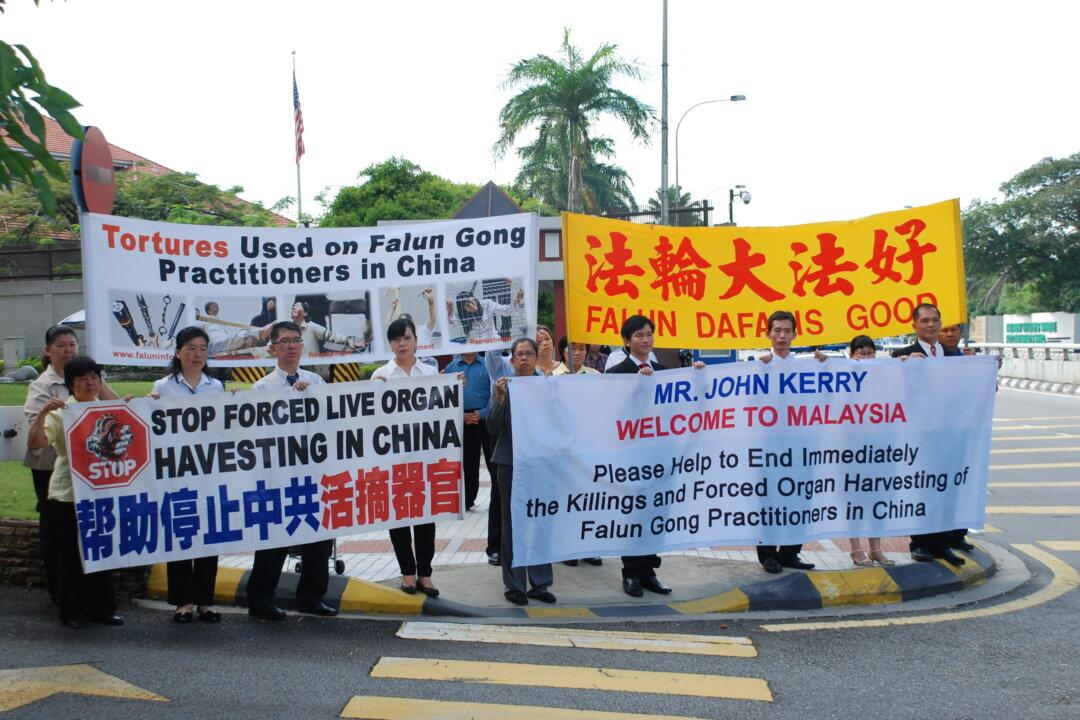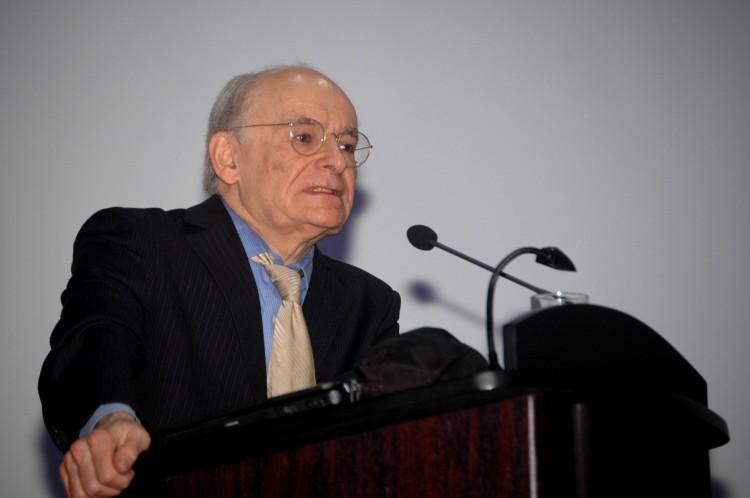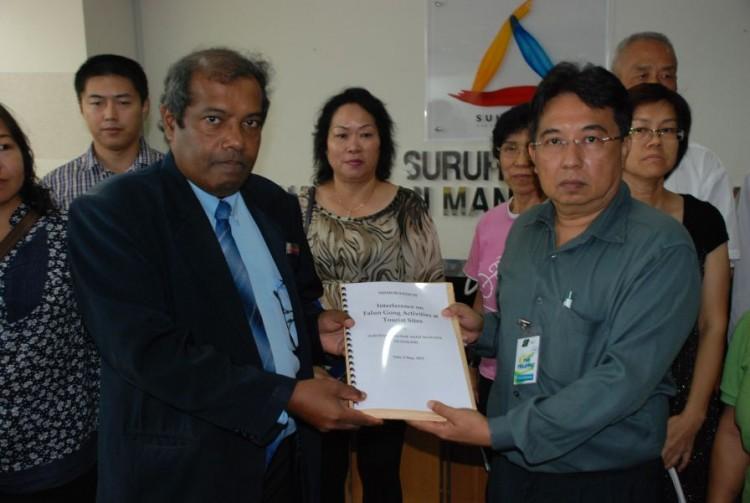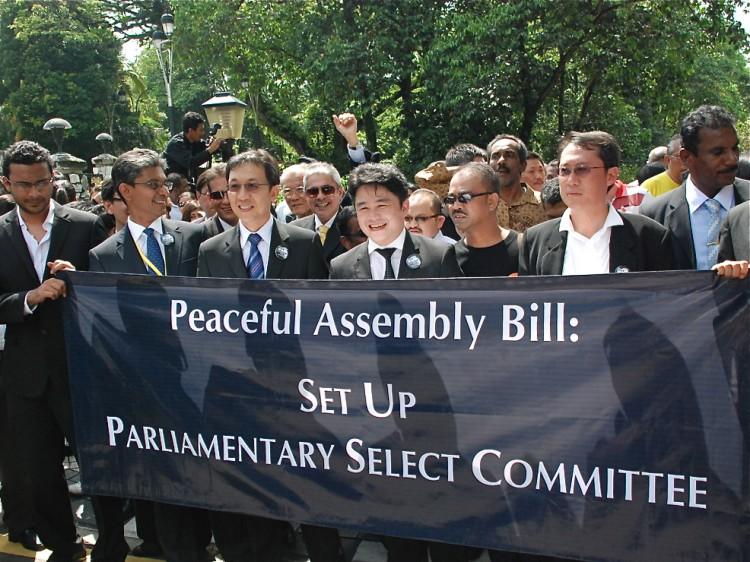Malaysia should have a regulatory and legislative framework in place to safeguard the interest of its citizens and prevent organ trafficking and transplant tourism from flourishing in the country, said Datuk (Dr). Harjit Singh, President of The Malaysian Society of Transplantation.
In order to initiate a healthy dialogue amongst the community in this country and to create an understanding of the difficult issues of Organ Trafficking and Transplant Tourism, the Malaysian Society of Transplantation organized a forum titled “Organ Trafficking and Transplant Tourism—The Needs for Regulatory and Legislative Control” on 9th July. Dr. Harjit Singh talked to The Epoch Times about transplant commercialism issues in conjunction with the forum.
Dr. Harjit added that organ donation and transplantation in Malaysia is currently governed by the Human Tissues Act 1974, which is mainly concerned with organ donation by deceased donors. The local health authorities are presently in the process of drafting a comprehensive organ and tissue transplant law to address all aspects of organ transplantation including those involving donation by live donors.
What exactly is transplant commercialism and tourism? In the “Declaration of Istanbul” leaflet handed out by the society; transplant commercialism refers to the exchange of money or some other form of significant material benefit between the recipient and the donor, either directly or, more frequently, through a middleman or broker who collects a fee for the “services.”
Organ commercialism, which targets vulnerable populations, such as illiterate and impoverished persons, undocumented immigrants, prisoners and political or economic refugees, in resource-poor countries, has been condemned by international bodies such as the World Health Organization for decades.
Yet in recent years, as a consequence of the increasing ease of Internet communication and the willingness of patients in rich countries for transplant tourism, the problem has grown into a global issue.
The Istanbul Declaration proclaims that the poor who sell their organs are being exploited, whether by richer people within their own countries or by transplant tourists from abroad. Participants in the Istanbul Summit concluded that organ trafficking and transplant tourism violate respect for human dignity and the principles of equity and justice and should be prohibited.
When asked about the organ harvesting from Falun Gong practitioners who are illegally incarcerated as prisoners of conscience in China, Dr. Harjit Singh said he is not able to give specific answers and data because he himself has only heard about it from other sources and from some of his colleagues. In the event that such things are happening in China or in any country, they are unethical and illegal.
He explained that, the Declaration of Istanbul and World Health Organization Guiding Principals serve to guide the member countries and civil societies of the world on ethical principles and practices in organ transplantation and also makes them aware regarding organ trafficking and transplant tourism.
Although there is no official data, Dr. Harjit said it is quite common to hear of desperate patients travelling to India, China, Philippines or other countries to get an organ transplant. The organs are often marketed over the Internet by many agents.
“When patients go overseas where organs are sold as a commodity, it is typically illegal, or the hospitals or clinic may not meet the expected surgical and medical standard quality control. Patients may come back with new diseases like Hepatitis B, Hepatitis C or even HIV. Sometime the transplanted organ may not function well and develop complication,” Dr. Harjit told The Epoch Times.
Dr. Harjit said that the Malaysian Society of Transplantation discourages Malaysians from going anywhere in the world to seek organs that are acquired illegally or unethically. One of society’s objectives is to create awareness on such unethical and illegal practices including transplant commercialism.
“I think if any person knows that these organs are coming from, executed prisoners or executed people, I am sure they will not go and have the organ transplantation. What we can do is to let people know the truth and let them make an informed decision,” said Dr. Harjit.
In order to initiate a healthy dialogue amongst the community in this country and to create an understanding of the difficult issues of Organ Trafficking and Transplant Tourism, the Malaysian Society of Transplantation organized a forum titled “Organ Trafficking and Transplant Tourism—The Needs for Regulatory and Legislative Control” on 9th July. Dr. Harjit Singh talked to The Epoch Times about transplant commercialism issues in conjunction with the forum.
Dr. Harjit added that organ donation and transplantation in Malaysia is currently governed by the Human Tissues Act 1974, which is mainly concerned with organ donation by deceased donors. The local health authorities are presently in the process of drafting a comprehensive organ and tissue transplant law to address all aspects of organ transplantation including those involving donation by live donors.
What exactly is transplant commercialism and tourism? In the “Declaration of Istanbul” leaflet handed out by the society; transplant commercialism refers to the exchange of money or some other form of significant material benefit between the recipient and the donor, either directly or, more frequently, through a middleman or broker who collects a fee for the “services.”
Organ commercialism, which targets vulnerable populations, such as illiterate and impoverished persons, undocumented immigrants, prisoners and political or economic refugees, in resource-poor countries, has been condemned by international bodies such as the World Health Organization for decades.
Yet in recent years, as a consequence of the increasing ease of Internet communication and the willingness of patients in rich countries for transplant tourism, the problem has grown into a global issue.
The Istanbul Declaration proclaims that the poor who sell their organs are being exploited, whether by richer people within their own countries or by transplant tourists from abroad. Participants in the Istanbul Summit concluded that organ trafficking and transplant tourism violate respect for human dignity and the principles of equity and justice and should be prohibited.
When asked about the organ harvesting from Falun Gong practitioners who are illegally incarcerated as prisoners of conscience in China, Dr. Harjit Singh said he is not able to give specific answers and data because he himself has only heard about it from other sources and from some of his colleagues. In the event that such things are happening in China or in any country, they are unethical and illegal.
He explained that, the Declaration of Istanbul and World Health Organization Guiding Principals serve to guide the member countries and civil societies of the world on ethical principles and practices in organ transplantation and also makes them aware regarding organ trafficking and transplant tourism.
Although there is no official data, Dr. Harjit said it is quite common to hear of desperate patients travelling to India, China, Philippines or other countries to get an organ transplant. The organs are often marketed over the Internet by many agents.
“When patients go overseas where organs are sold as a commodity, it is typically illegal, or the hospitals or clinic may not meet the expected surgical and medical standard quality control. Patients may come back with new diseases like Hepatitis B, Hepatitis C or even HIV. Sometime the transplanted organ may not function well and develop complication,” Dr. Harjit told The Epoch Times.
Dr. Harjit said that the Malaysian Society of Transplantation discourages Malaysians from going anywhere in the world to seek organs that are acquired illegally or unethically. One of society’s objectives is to create awareness on such unethical and illegal practices including transplant commercialism.
“I think if any person knows that these organs are coming from, executed prisoners or executed people, I am sure they will not go and have the organ transplantation. What we can do is to let people know the truth and let them make an informed decision,” said Dr. Harjit.



